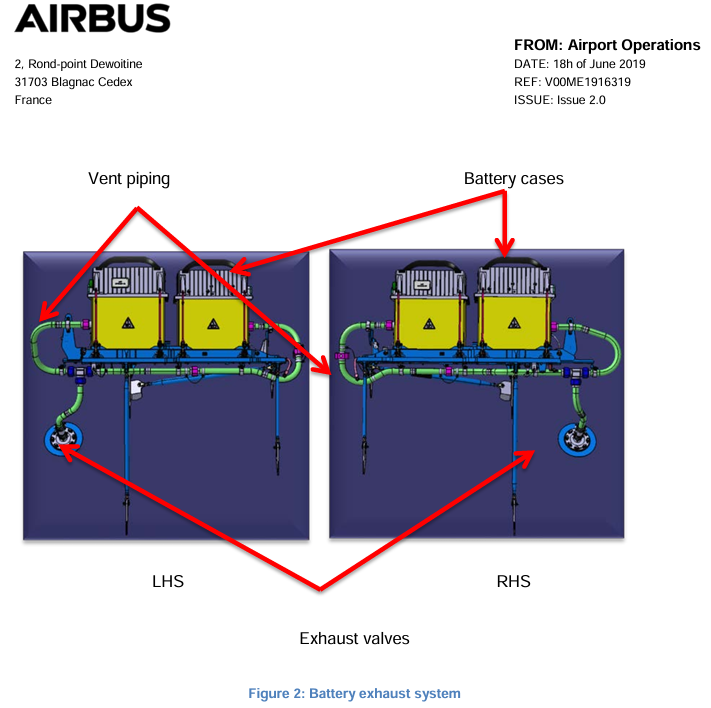June 22, 2025, 00:56:00 GMT
permalink Post: 11908160
Let us assume a simple, hypothetical WoW sensor arrangement: One sensor per main landing gear.
One of those sensors is indicating weight OFF wheels and the other is indicating weight ON wheels. What does the TCMA in each engine interpret that ostensibly contradictory sensor information to mean? (Note: For the time being, ignore the question whether the information is erroneous. It may be true.)
Are both engine TCMA's in the 'in the air' state, are both 'on the ground', or is one 'on the ground' and the other 'in the air'?
Given the purpose of the TCMA, I would have thought that any 'doubt' in this case would be resolved in favour of the 'on ground' state for both TCMAs.
But maybe it's the other way around. Maybe any 'doubt' would be resolved in favour of both TCMA's being in the 'in the air' state.
I have difficulty in envisaging any advantage in the TCMA system being designed such that one engine's TCMA is in the 'in the air' state and the engine's 'on the ground'.
Whichever the design and outcome, there will be benefits and there will be risks.
Based on this, both engines will get the same air/ground indication from the aircraft and hence will always make the same TCMA decisions (subject to their individual throttle positions and thrust outputs).
Last edited by Chernobyl; 22nd June 2025 at 00:58 . Reason: Clarified the air/ground decision logic.
Subjects: None
The thread is closed so there are no user likes are available and no reply is possible.
June 22, 2025, 15:48:00 GMT
permalink Post: 11908592
I will suggest some amendments to your last sentence, though: Based on this, both engines
Let's not lose sight of the fact that a 787 has had a TCMA 'commanded' double engine shut down, luckily only during the landing roll. That double shut down was not in circumstances of a rejected take-off where one or both engines delivered 'too much' thrust despite thrust levers being set to idle or 'low power'. Some might say incredible. But it's fact.
The best designed systems and software sometimes do strange, unexpected things even when everything is working 'properly', and even stranger things when some defect or damage occurs.
Subjects: None
The thread is closed so there are no user likes are available and no reply is possible.
June 29, 2025, 19:16:00 GMT
permalink Post: 11913160
To put this to rest as well - here is the Lithium battery thermal protection for what is arguably the most modern (non-Boeing) airliner out there: the Airbus A350 series.

Source: https://aircraft.airbus.com/sites/g/...irefighter.pdf
Subjects: None
The thread is closed so there are no user likes are available and no reply is possible.
July 09, 2025, 23:25:00 GMT
permalink Post: 11918671
But this is starting to devolve into a hamster wheel again.
Last edited by Chernobyl; 10th July 2025 at 05:32 .
Subjects
Fuel (All)
Fuel Cutoff Switches
Preliminary Report
Relight
Links are to this post in the relevant subject page so that this post can be seen in context.
The thread is closed so there are no user likes are available and no reply is possible.
July 13, 2025, 20:25:00 GMT
permalink Post: 11921561
Ideation doesn't always result in an actual act, but if the thoughts came from life factors not being fully brought into consciousness, there may be a 'dream sequence' moment where they actually do the thing they've played with in their mind. It's not pre-planned or intentional, and the person who's acted out may not even be consciously aware they've done so.
Subjects: None
No recorded likes for this post (could be before pprune supported 'likes').Reply to this quoting this original post. You need to be logged in. Not available on closed threads.
July 17, 2025, 18:27:00 GMT
permalink Post: 11924531
I'm genuinely puzzled about the statements above (and many more similar examples in previous posts too numerous to count). I checked the language in my own policy (a common term life insurance policy in Canada) and it explicitly states under exclusions: "Suicide within 2 years of the effective date of coverage or reinstatement, or the date of any increase in coverage, is not covered." [again, emphasis mine] Beyond the 2 year exclusion period, suicide is considered an insured risk.
So, is everyone just presuming that insurance policies don't/won't pay out in the event of suicide? If so, I have at least one example that counters that common knowledge. Perhaps this is an exclusion in flight crew life insurance -- I don't rightly know (as simple SLF I'm not aware of those Ts & Cs). Can anyone point to an authoritative source (as opposed to just surmised knowledge) which states that a life insurance policy will not pay out in the event of suicide (past any exclusion period) and hence could be motivating factor in the decision-making of this incident? Further, it should be from an Indian life insurance company that would typically cover pilots (as this is the relevant scenario).
For further clarity: I take no position on whether this incident was triggered by intent or not. I just want to better understand whether this particular aspect may or may not have been a contributing factor.
Subjects
FDR
Links are to this post in the relevant subject page so that this post can be seen in context.
Reply to this quoting this original post. You need to be logged in. Not available on closed threads.
February 04, 2026, 07:06:00 GMT
permalink Post: 12032008
Subjects
Engine Failure (All)
Engine Shutdown
Fuel (All)
Fuel Cutoff Switches
Links are to this post in the relevant subject page so that this post can be seen in context.
Reply to this quoting this original post. You need to be logged in. Not available on closed threads.